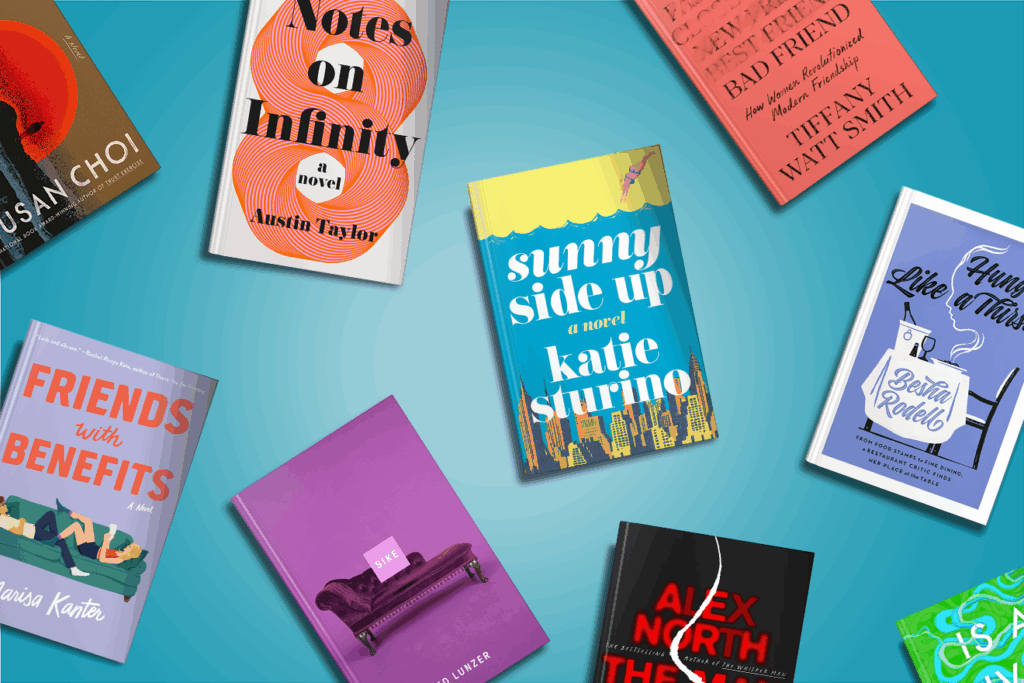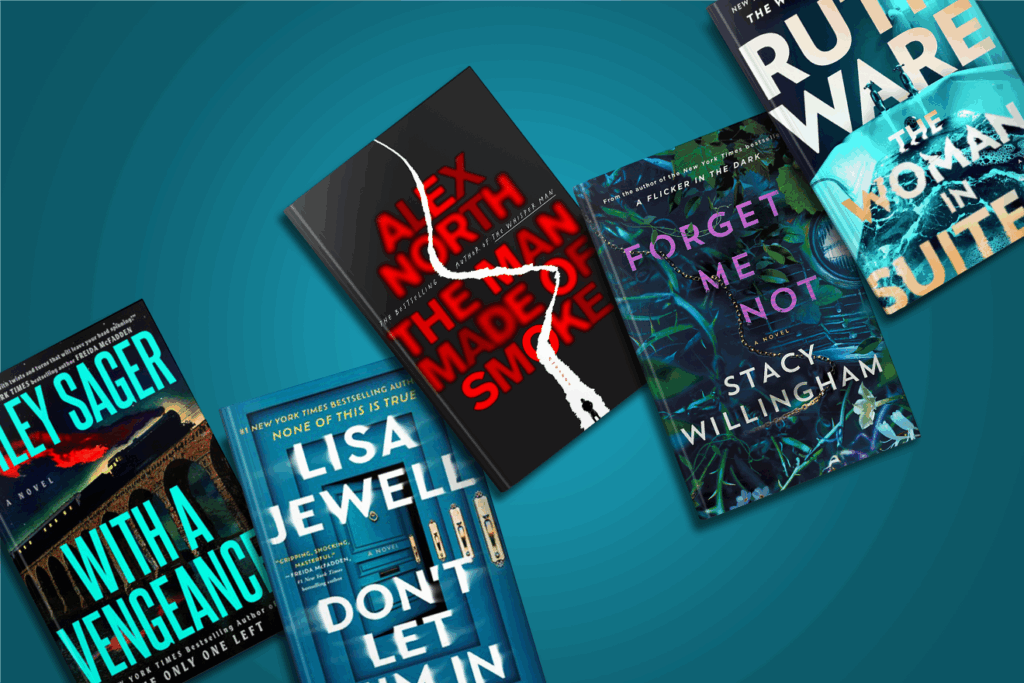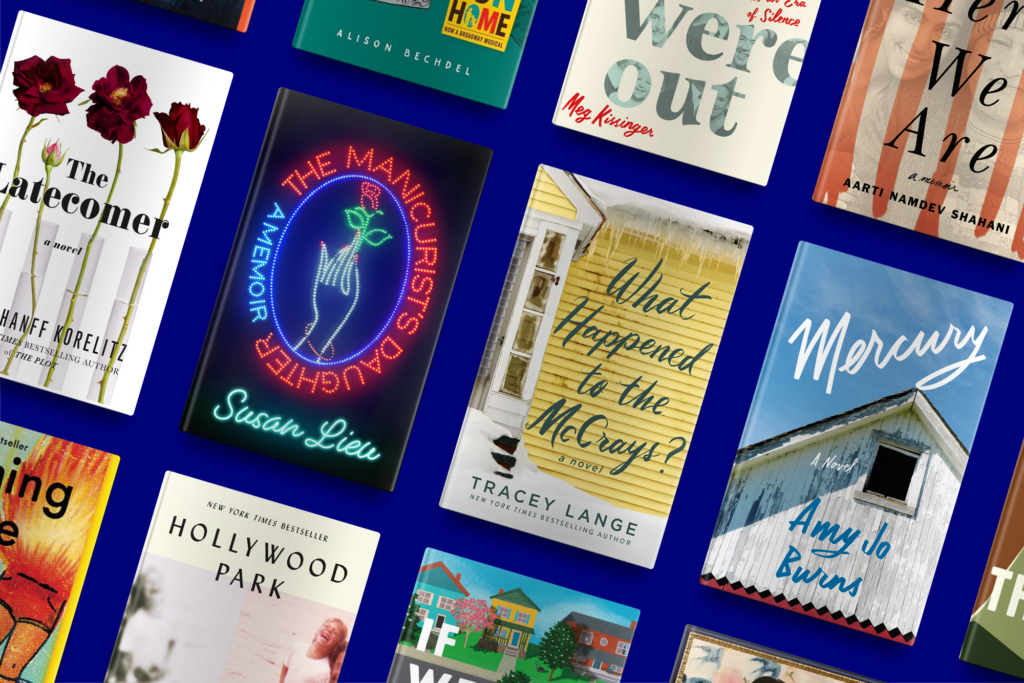The story of America is full of accidents and improbabilities, grand ambitions and terrible tragedies, sudden changes and the slow march of time. In other words, the stuff of great literature. These essential books recount the history of the United States in its most pivotal moments, from the arrival of European explorers to the Vietnam War. Each U.S. history book is illuminating, entertaining, and, above all, an unforgettable read.
18 Books That Help You Understand America’s History
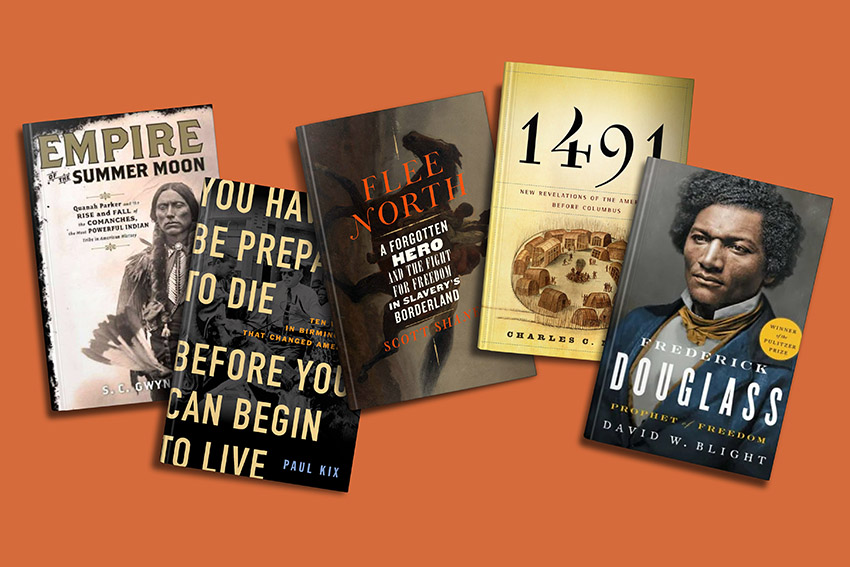
Best Books About Early America
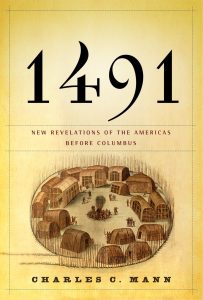
1491
By Charles C. Mann
This must-read blend of history and science contends that the common understanding of life in the Americas before the arrival of European explorers is almost completely wrong. From the Inca Empire in Peru to Cahokia, the religious center of ancient Mississippian culture, Mann reveals that native societies were much larger, more sophisticated, and more impactful on the environment than we have been led to believe. Few revisionist histories are more eye-opening or entertaining.
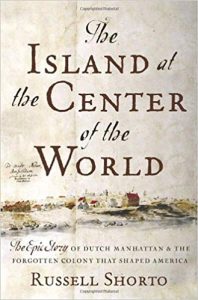
The Island at the Center of the World
By Russell Shorto
With wit and style, Shorto documents life in 17th-century New Netherland, and its capital, New Amsterdam, revealing the Dutch colony’s influence on the American character. From the political rivalry between the settlement’s autocratic director-general, Peter Stuyvesant, and republican lawyer Adriaen van der Donck, to lyrical descriptions of the flora and fauna of what is now New York City, Shorto unearths a lost world that is both familiar and fantastically strange.
Best Books About the American Revolution
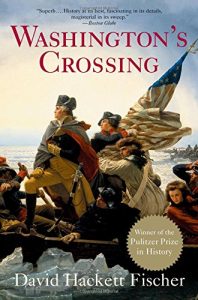
Washington's Crossing
By David Hackett Fischer
Memorialized in Emanuel Leutze’s iconic—but historically inaccurate—painting, the December 1776 assault on Hessian troops stationed in Trenton, New Jersey was a crucial victory for George Washington and the Continental Army following a string of devastating defeats in New York. Fischer’s cinematic, meticulously researched account sets the record straight on a number of key facts—including the types of boats used to cross the Delaware River—and makes vividly clear just how close the Americans were to losing the war against the English before it had fully begun.
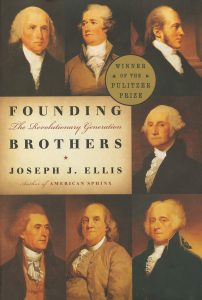
Founding Brothers
By Joseph J. Ellis
As Ellis makes clear, the decades that followed the American Revolution and the Constitutional Convention were anything but tranquil. Divisions between Federalists and Republicans, the threat of war with France, and the third-rail of slavery all threatened to doom the new nation in its infancy. In this illuminating episodic history, Ellis reveals that the success of the American experiment depended not just on the wisdom of its Founding Fathers, but on a great deal of luck and happenstance.
Best Books About the Civil War
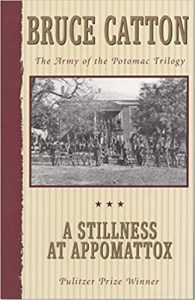
A Stillness at Appomattox
By Bruce Catton
Recounting the final year of the Civil War, Pulitzer Prize- and National Book Award-winner Catton brilliantly describes the epic clashes that turned the tide of the conflict in the North’s favor: the Wilderness, the Bloody Angle, the Crater, etc. Few historians have captured the soldier’s eye view of battle with greater eloquence or a finer appreciation for how each spur-of-the-moment decision fits into the bigger picture.
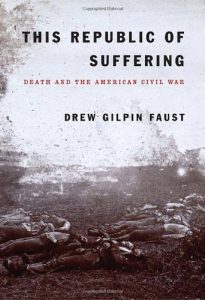
This Republic of Suffering
By Drew Gilpin Faust
Approximately 620,000 soldiers—or 2 percent of the total U.S. population—perished in the Civil War. Today, the same rate of death would equal 6.5 million. But mere numbers cannot fully convey the impact of such monumental suffering on the American psyche. Faust’s somber, elegiac study cuts through the gauzy sentimentalism that surrounds so many popular depictions of the war and serves as a powerful reminder that armed conflict comes with a terrible price.
Best Books About Slavery in America
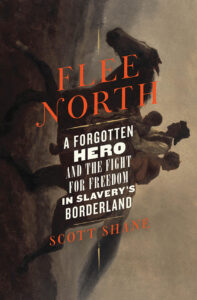
Flee North
By Scott Shane
Pulitzer Prize-winning journalist and author Scott Shane presents the extraordinary story of Thomas Smallwood, a writer, liberator, and fearless abolitionist in 19th-century America who coined the phrase “underground railroad” and helped hundreds of enslaved people find freedom in the North. Born into slavery in 1801, Smallwood bought his own freedom and established a shoemaking business before collaborating with fellow abolitionists to orchestrate mass escapes. Afterward, Smallwood would document his victories in biting newspaper columns, championing his successes while mocking slaveholders and the police officers who worked for them. Despite his astonishing achievements, Smallwood is rarely discussed in American history books. Shane rectifies this omission, chronicling, for the first time, Smallwood’s life and heroism while offering a thorough depiction of the domestic slave trade in pre-Civil War America.
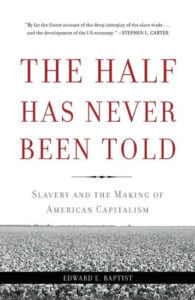
The Half Has Never Been Told
By Edward E. Baptist
Historian Edward E. Baptist presents a profound and damning account of slavery in the United States in this award-winning American history book. Spanning the American Revolution to the Civil War, with an afterword that extends into the early 1900s, Baptist’s searing narrative reveals slavery’s far-reaching impact on American capitalism and prosperity, demonstrating in impeccably researched detail how forced labor fueled America’s evolution into a global superpower. Enriched by a wealth of historical documents and intimate oral histories from formerly enslaved people, The Half Has Never Been Told is “essential for all readers interested in American history and the history of slavery” (Library Journal).
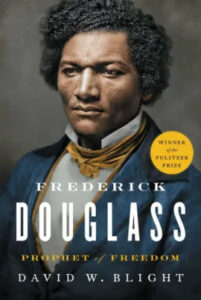
Frederick Douglass: Prophet of Freedom
By David Blight
In this Pulitzer Prize-winning biography, David Blight draws on in-depth archival research and never-before-seen historical documents to produce an authoritative portrait of Frederick Douglass. Douglass stands as one of the most influential figures in American history: After escaping slavery in 1838, he rose to become a leading abolitionist, orator, author, and statesman in 19th-century America. Blight produces a powerful accounting of Douglass’s political and personal life here, delving into Douglass’s early years as an enslaved person, his escape from bondage and his political awakening, and demonstrating how Douglass’s unwavering commitment to freedom and the abolitionist movement helped alter the course of American history.
Best Books About the Wild West
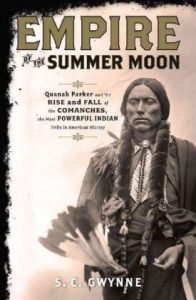
Empire of the Summer Moon
By S.C. Gwynne
Comanche Indians once ruled the Great Plains, slowing the march of Manifest Destiny and dominating rival tribes with their superior fighting and riding skills. But by the late 1860s, railroads and the repeating rifle spelled doom for the Comanche. Gwynne’s eloquent, riveting portrait of the tribe and their last and greatest chief, Quanah Parker, captures the blood and fury of westward expansion and restores the Comanche to their rightful place in American history.
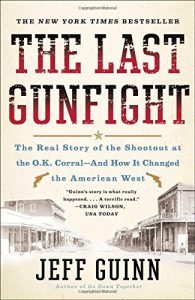
The Last Gunfight
By Jeff Guinn
Few moments in the history of the Wild West are more celebrated than the 1881 showdown between Wyatt Earp, Doc Holliday, and a gang of outlaw cowboys at the O.K. Corral in the small town of Tombstone, Arizona. But Guinn’s gritty and gripping account reveals that much of what we think we know about the iconic event—including where it happened—is wrong, and shows that on the dusty streets of the American West, the line between hero and villain was never as sharply drawn as it looks in retrospect.
Best Books About the Great Depression
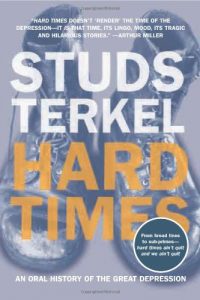
Hard Times
By Studs Terkel
From well-known figures such as Pauline Kael, Cesar Chavez, and Dorothy Day, to the hobos who crisscrossed the country looking for work and the mothers who faced each day not knowing what their children would eat, Terkel elicits the painful memories of Americans whose lives were forever changed by the Great Depression. The humor, resilience, and courage of these survivors shines through on nearly every page of this essential oral history.
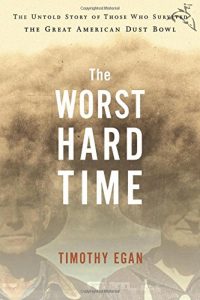
The Worst Hard Time
By Timothy Egan
After the stock market crash of 1929, the devastating combination of drought, wind, and overworked farms that created the Dust Bowl couldn’t have come at a worse time. As the New York Times bestselling author Egan reveals in this fascinating and colorful history, the catastrophe could have been avoided with foresight and a greater respect for the natural environment. At a time when record heat waves and severe storms are occurring with greater frequency, it’s essential to remember how the country once survived a natural disaster of its own making.
Best Books About World War II
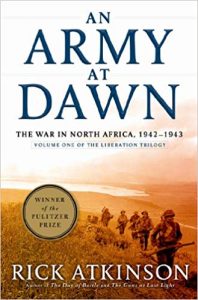
An Army at Dawn
By Rick Atkinson
War correspondent Atkinson brings a novelist’s flair for storytelling to this Pulitzer Prize-winning account of the Allied invasion of North Africa. Operation Torch was a crucial testing ground for U.S. troops, who were undertaking their first significant action outside of the Pacific Theater, and a key milestone on the roadmap to liberate Europe. Atkinson’s insightful character sketches and enthralling action sequences turn the dry facts of history into an edge-of-your-seat thrill ride.
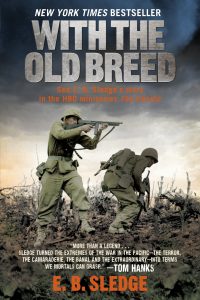
With the Old Breed
By E.B. Sledge
After dropping out of an officer training program to ensure that he wouldn’t miss the war, Sledge joined the U.S. Marines as an enlisted man. He immediately encountered some of the fiercest fighting of WWII at Peleliu and Okinawa, where he secretly recorded his impressions in a pocket-sized New Testament. More than 30 years later, he turned those notes into this terrifying, exhilarating, and deeply moving account of the war in the Pacific.
Best Books About the Civil Rights Movement
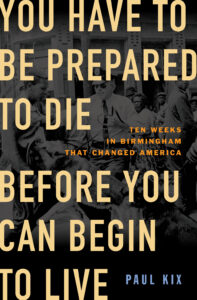
You Have to be Prepared to Die Before You Can Begin to Live
By Paul Kix
Fully told for the first time, the riveting story of the 1963 Birmingham campaign tells about the 10 weeks that shaped the course of the Civil Rights movement. Journalist and author Paul Kix takes readers behind the scenes of the Southern Christian Leadership Conference's pivotal campaign to end segregation in Birmingham, Alabama—then considered the most racist city in America—with page-turning prose that reads like a novel. Kix provides nuanced glimpses into the minds of the four extraordinary men who led the campaign—Martin Luther King, Jr., Wyatt Walker, Fred Shuttlesworth, and James Bevel—which helps readers understand the impact that strategic activism can have in our own time.
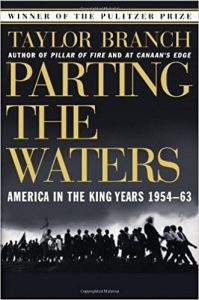
Parting the Waters
By Taylor Branch
From Martin Luther King, Jr.’s organization of the Montgomery Bus Boycott to his involvement in the pivotal Birmingham campaign, Branch expertly chronicles a time of radical change in America. In addition to capturing the qualities that made King such an inspirational leader, Branch offers essential portraits of fellow activists such as John Lewis, Wyatt Tee Walker, Ella Baker, and Stanley Levison.
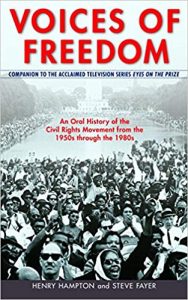
Voices of Freedom
By Henry Hampton and Steve Fayer
A companion to the PBS series “Eyes on the Prize,” this stunning oral history recounts the defining moments of the Civil Rights movement from the perspectives of the students, ministers, lawyers, Freedom Riders, and journalists who were there. From the lynching of Emmett Till to the rise of the Black Panther Party to the battle to desegregate Boston’s public schools, icons such as Rosa Parks, Jesse Jackson, and Huey Newton join a chorus of ordinary citizens to share their pride, fear, courage, joy, and pain.
Share with your friends
Related Articles
Celadon delivered
Subscribe to get articles about writing, adding to your TBR pile, and simply content we feel is worth sharing. And yes, also sign up to be the first to hear about giveaways, our acquisitions, and exclusives!
Celadon delivered
"*" indicates required fields
